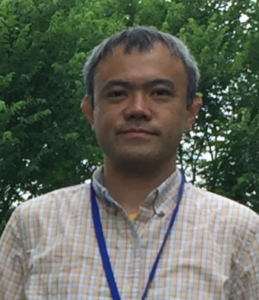Faculty Spotlight – Katsuya Izumi
 |
Katsuya IzumiLecturer |
I had taken a long, twisty and winding road before I joined Trinity College as a Japanese lecturer in 2019. The first novel I read when I became a graduate student in Japan was Herman Melville’s Pierre; or, the Ambiguities. Meandering though Melville’s English, which was as labyrinthine as on old city of Boston or an archaic quarter of Kyoto, I encountered thrilling and dangerous moments of reading for the first time. Many years later, that experience led me to write my dissertation which focused on affinities between early American protestant sermons and the nineteenth-century American writers in terms of self-effacement. Not long after that, however, I was attracted to different kinds of similarities between the nineteenth-century American writers such as Melville, Dickinson, and Thoreau and the concept of “No Self” (or 無私/無心) in Buddhism. That is how I started to read Asian American literature and Japanese literature.
While my recent writing project focuses on what can be linked to the act of eating (food/cannibalism/monsters) in the wide range of Asian American literature, modern Japanese literature and Japanese films, my central interests underlying my project hinge on the relationship between the concept of “No Self” and an affluence of identities and meanings in the modern society. My most recent article (published as a book chapter in an edited volume titled (In)digestion in Literature and Film: A Transcultural Approach, edited by Niki Kiviat and Serena J. Rivera), “Multiplicities of Identities and Meanings behind Devouring Characters in Hayao Miyazaki’s Spirited Away” is one of my investigations into that relationship.
Teaching Japanese language and culture, I continue to encourage my students to find similarities in different languages and cultures and to find differences in similar aspects of languages and cultures by emphasizing the importance of close-reading texts. Just like many enthusiastic students at Trinity College, I would also like to continue to be a learner who is interested in exciting and dangerous territories between different languages, literatures, and cultures.
